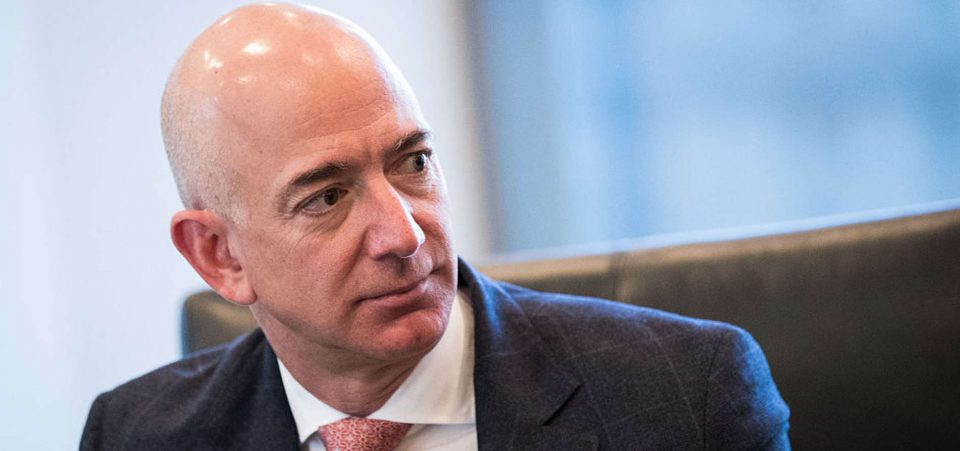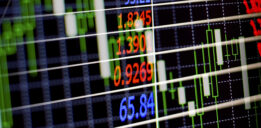Amazon CEO Sells $1.1 Billion Worth of AMZN Stock
Jeff Bezos, the largest individual shareholder of Amazon.com, Inc. (NASDAQ:AMZN), sold $1.1 billion worth of his AMZN shares in early November. The transactions represented more than one percent of his total holdings in the company. The sale happened to take place when the shares were trading at an all-time high.
Amazon is known as a company that should continue to grow and gain further market share. Is this sale a concerning move? Was it meant to reduce Bezos’s overall investment risk of owning Amazon stock? Is it a sign of a stock market top? Let’s take a look.
Why Would Bezos Sell Shares if the Company Is Expected to Continue Growing?
One reason for the sell-off could be that Amazon stock has already had a tremendous run over the past year; shares are up approximately 60% in this period. By Bezos reducing his stake, it lowers the risk within his investment portfolio and allows him to grow his capital in another investment opportunity that has a higher growth rate.
Yes, the company is gaining market share and changing the traditional retail environment. However, as each day passes, more competitors gain ground in the growing e-commerce market.
One example is Wal-Mart Stores Inc (NYSE:WMT). Years ago, the company’s management team was against transforming the business to accommodate online sales; they didn’t see it as a viable business model. More recently, Wal-Mart has been investing more each year into its online presence, through online infrastructure upgrades and acquisitions.
The sale of Amazon shares by Bezos could be a proactive move to protect himself from a stock market top. Since he has a first-hand view of the dynamic changes in the retail atmosphere, he could be seeing a shrinking growth rate for Amazon and more fierce competition in the near future.
Even though Bezos is currently in charge of a retail e-commerce company, he does have a previous life on Wall Street, including experience working for a hedge fund. This supports the thesis of Bezos taking money off the table in order to preserve his wealth and manage his risk.
Furthermore, it is expected that Bezos will invest the proceeds from his AMZN stock sale into Blue Origin, LLC. This is Bezos’s business venture related to the space sector.
Here is another issue to consider; everyone has the same amount of time in a given day. If one minute is spent doing one task, it means there is one minute less available for another activity. Bezos could be deciding to spend more of his time (and money) growing Blue Origin. The space sector is a new industry that sounds very exciting; it could turn into a real business down the line, with many new financial opportunities.
Jeff Bezos is not the first to invest in the space segment of the market; Lowe’s Companies, Inc. (NYSE:LOW) is just one of a few companies that is pushing into the sector. Lowe’s is the second-largest home improvement retailer in the United States. With Lowe’s and Blue Origin both putting money into this new market segment, it shows that they are looking forward to the next big investment opportunity.
Another Example of Insider Selling, Followed by Bad News for the Share Price
This past summer, Equifax Inc. (NYSE:EFX) saw its stock price drop by more than 40% from its all-time highs in the span of only one week. This was the result of a security breach that gave cyber attackers the personal information of Equifax clients.
The company did not report the information about the breach to clients and investors immediately; Equifax insiders considered the process to follow in order to cause the least amount of harm toward the company’s share price. Management knew, however, that the data breach would impact Equifax’s future financial results, including earnings, growth, and margins. No matter when or how the news was released, it would greatly impact the stock price.
One very important aspect to note was that company insiders who knew about the information breach sold their shares before the news went public. Before the news was released, the shares were trading above $140.00 per share; afterward, they were trading below $100.00 a share. This is an example of insiders preserving their nest eggs and reducing their overall investment risk.
Final Thoughts About the $1.1 Billion Share Sell-Off by Jeff Bezos
The above Equifax example is an extraordinary one that involved a company in a negative situation. The one takeaway, though, is that insiders protected their capital by selling their personal shares. There was a drop in the stock price after it had hit its all-time high.
This could end up happening with AMZN stock, since it is currently trading at record-high prices.
Since Jeff Bezos is investing his own capital into another company that he owns, it shows that he is a man on a mission for more success. His move could also be signal of a stock market top, because Bezos is taking capital from a publicly traded company and putting it into a privately operated business. Blue Origin does not see the same market volatility as AMZN stock does; therefore, Blue Origin offers capital preservation at a higher rate.






